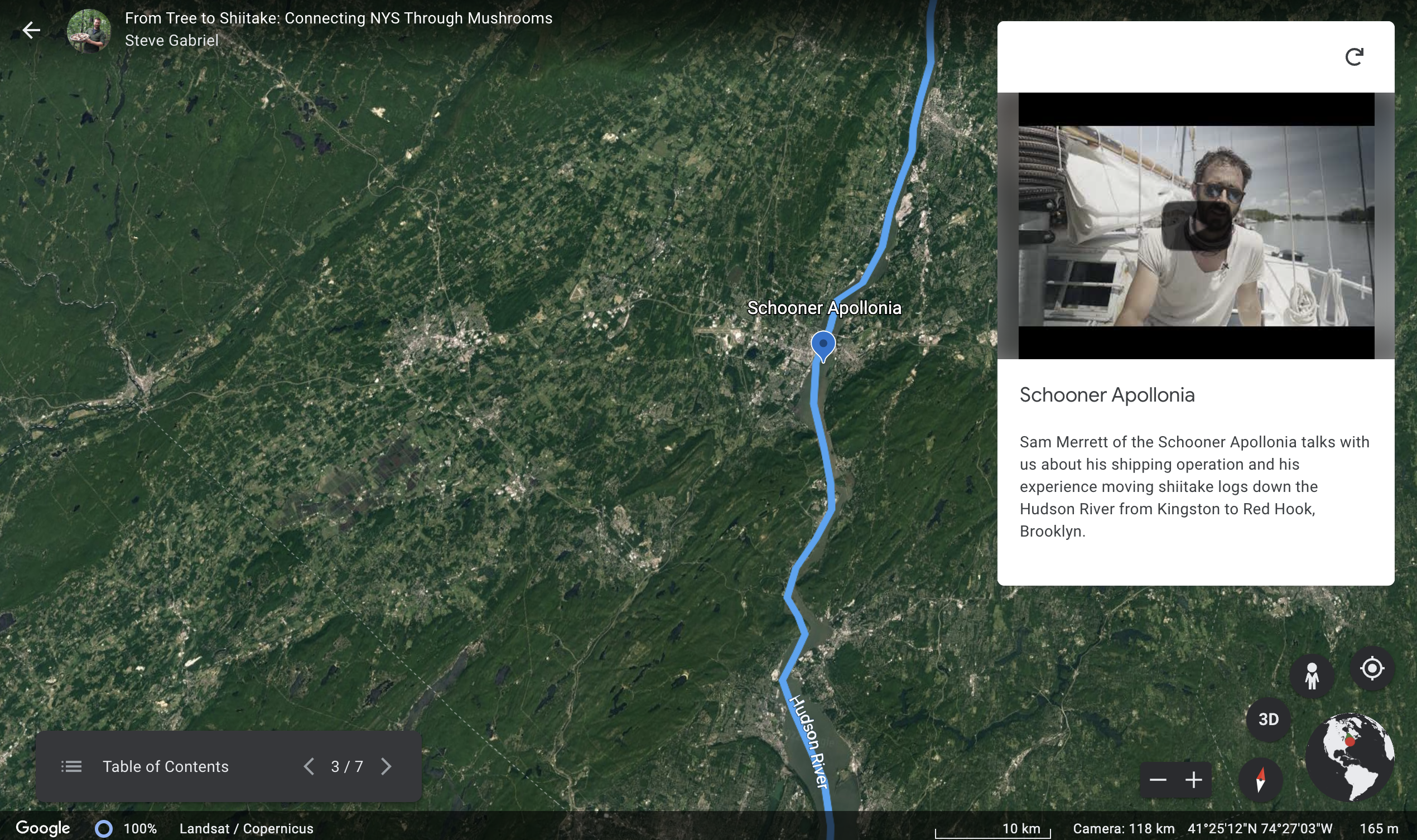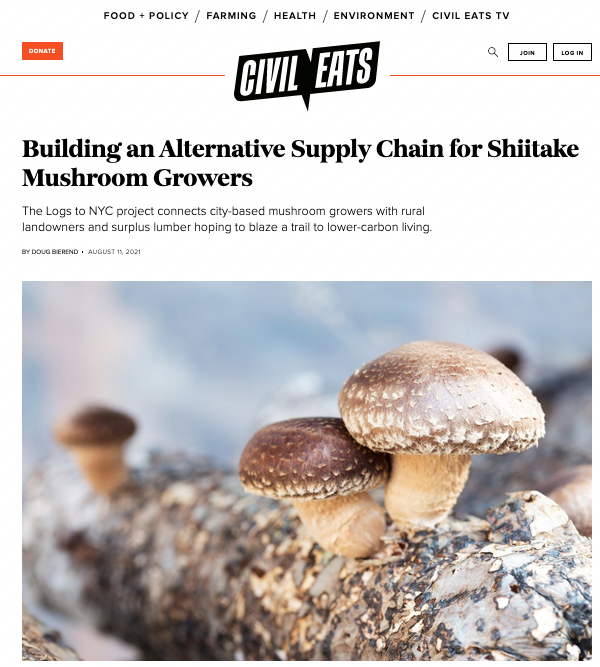Shiitake Mushroom Logs connect the Catskills to NYC
For thousands of years, mushrooms have been grown on hardwood logs from sustainably managed forest lands. Their origins trace to parts of China, Korea, and Japan. Shiitake cultivation on logs is one of the oldest known forms of agriculture. Today, log cultivation is increasingly rare, replaced by technology and now many shiitake in the US come from synthetic sawdust “logs” often manufactured in overseas and shipped over 7,000 miles to New York City.
Yet just upstream from the city are abundant forests in need of stewardship, and logs sourced from upstate forests support the livelihoods of foresters and loggers. Species such as Oak and Sugar Maple in small diameters offer little market value but are perfect materials for mushroom cultivation. Many community farms and gardens in New York would benefit from the ability to grow their own mushrooms.
In the summer of 2021, a partnership between the Cornell Small Farms Program, Woodsman Forest Products, Schooner Apollonia, Hudson River Maritime Museum, RETI Center, and Red Hook Community Farms piloted the carbon-neutral transport of logs from upstate forests to community farms and gardens in New York City.
The logs were provided by Tim Lindtveit of Woodsman Forest Products, sustainably harvested from woodlands in the Catskill mountains and brought down to the water alongside the Hudson River Maritime Museum.
Tom shares about the unique process of harvesting mushroom logs and how it can help support good forest management.
On July 24th, a mushroom growing workshop convened at this location, with Cornell Small Farms Program and The Mushroom Shed facilitators teaching 25 participants how to grow shiitake mushrooms on logs and oyster mushrooms on cardboard and coffee grounds.
Amanda Heidel from the project shares about the use of waste materials commonly found that can be used for mushroom growing.
Participants also helped load about 300 oak and maple logs onto the Schooner Apollonia, a carbon-neutral sailing vessel that took the logs about 70 miles downstream along with other New York farm goods to New York City.
Just consider the impact of being able to send such heavy cargo (over 9,000 pounds!) a far distance with only the wind as the carrier. That, and the dedicated work of the ships crew. It took about five days to sail down to the city where the ship docked at the RETI Center in Red Hook, Brooklyn on July 29.
With the help of the incredible youth farmers from Red Hook Community Farm, the logs were unloaded and moved by bike and trailer to the main farm site, just down the street. With the help of over over 50 volunteers over two beautiful sunny summer days, all 300 of the logs were inoculated with shiitake mushrooms - an impressive feat only possible with the dedication and focus of everyone involved and the accommodation of the Red Hook Farm staff to make space for us to work in community.
After inoculation, the logs were distributed among twelve inspiring urban agriculture projects around the city. Over the coming years, these logs should produce over 1000 pounds of mushrooms for the farm communities to enjoy as a vital food and medicine.
Projects that took logs home included:
Isabahlia Ladies of Elegance Foundation
This Project was featured in CIVIL EATS
"While not a lot of money traded hands through this project, resources moved from a place where they were abundant to a place where they are scarce, engaging various communities along the way. Gabriel says that despite the promising numbers, this won’t likely lead to any kind of mushroom gold rush. But maybe its success suggests that, for chains of supply to meet everyone’s material needs, they should be motivated by a broader and less extractive concept of value.
Whatever the price per log or pounds of mushrooms produced, this experiment has connected people along a new type of supply chain that is, in some ways, quite old and familiar. And it’s a chain that can be reactivated next year, or the year after that, to ship more logs, or some other resource entirely."




